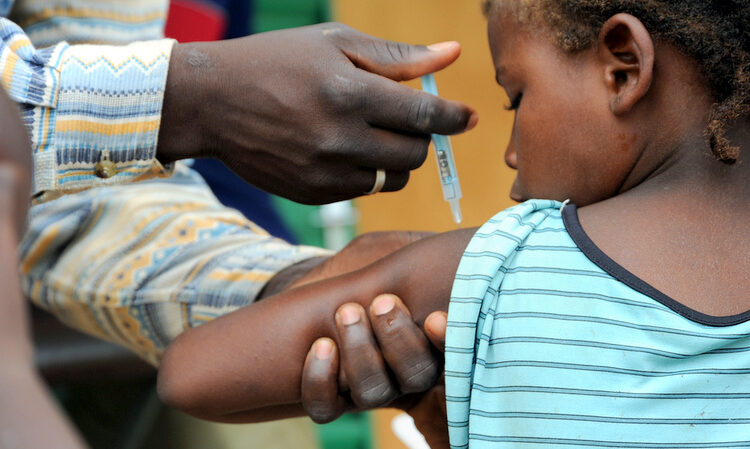Urgent Push: Health Groups Demand New Emergency Operation Centers

eHealth Africa (eHA) actively participated in the International Conference on Primary Health Care (ICPHC 2025) in Addis Ababa, Ethiopia, joining global health leaders, policymakers, and partners. The organization contributed to critical discussions on digital transformation, the sustainability of public health infrastructure, the integration of renewable energy for improved healthcare delivery, and strategies for enhancing health system resilience across the African continent. The conference, themed “Advancing Primary Health Care in the 21st Century: Putting People First,” served as a platform for thought leaders and innovators dedicated to strengthening primary health care and advancing Universal Health Coverage (UHC).
Atef Fawaz, the Executive Director of eHealth Africa, noted that the theme of ICPHC 2025 closely aligns with eHA’s core mission of developing human-centered solutions to advance primary healthcare in underserved communities. He emphasized eHA’s belief that technology and data must serve people, a principle that underpins all their interventions. These initiatives, presented to partners at the conference, include the establishment of emergency operation centers, renewable energy projects in primary healthcare facilities, the development of climate-resilient digital solutions, and the creation of smart tools designed for vaccination campaigns.
Highlighting the critical importance of sustainability and local ownership for public health emergency operation centers across Africa, Kazeem Balogun, Deputy Director of Supply Chain Management, spoke during a panel discussion. He presented findings from eHA's Cross-Country Impact Study of Polio Outbreak Control Rooms (POCRs) in sub-Saharan Africa. Balogun underscored that Emergency Operation Centres should be viewed not merely as polio infrastructure but as integrated public health command centers. He stressed the goal of building government-sustainable systems that serve as national assets embedded within primary health care structures, rather than facilities driven solely by donor support.
Anthony Edozieuno, Program Manager for Public Health Emergency Management, provided an overview of the genesis and expansion of Emergency Operation Centres, which began in Nigeria and have since evolved into a multi-country model. This model now strengthens emergency coordination across more than 24 African countries, serving as a testament to effective shared learning and robust partnerships. The panel discussion, which followed a preceding roundtable, enabled partners to exchange success stories and demonstrate the significant impact these Public Health Emergency Operation Centres have had on preparedness and response capabilities.
At ICPHC 2025, eHealth Africa also hosted two dedicated roundtable sessions to showcase its human-centered digital solutions. Temitayo Tella-Lah, Program Manager for Climate Adaptation in Health, Food Security, and Nutrition, introduced eHealth Africa’s Climate Health Vulnerability Assessment Tool (CHAT). This digital platform assists governments, stakeholders, and primary healthcare facilities in assessing their vulnerabilities to climate change. Tella-Lah explained that CHAT empowers decision-makers to transition from awareness to action, enabling countries to pinpoint risks, design climate-resilient health interventions, and proactively protect communities before crises escalate. Designed to strengthen evidence-based climate adaptation planning at both national and subnational levels, CHAT represents a tangible step towards integrating climate intelligence into health system decision-making and fostering climate-resilient primary healthcare delivery.
In parallel, Abubakar Shehu, Program Manager for Disease Prevention and Monitoring, presented eHealth Africa’s PlanFeld solution—a digital microplanning tool revolutionizing vaccination logistics. Shehu detailed how PlanFeld dramatically reduces microplanning time from five days to just ten minutes, ensuring equitable workload distribution, minimizing missed settlements, and empowering governments to make faster, more informed vaccination decisions.
Concluding eHealth Africa’s presentations at ICPHC 2025, Toju Ogele, Project Manager, made a strong call for the widespread scale-up of renewable energy solutions within primary health care facilities.
You may also like...
Wolves Fandom Erupts: 'Sell the Club!' Chants Rock Stadium Amidst Frustration!

Wolves fans' frustration reached a boiling point at Molineux, with chants against the club's ownership and manager Vitor...
Haaland's Agony: Disallowed Goal and Injury Plague Man City's Disappointing Outing!

Manchester City's nine-match unbeaten run came to an end at Villa Park as Aston Villa secured a victory, highlighted by ...
Andrew Garfield Teases Spider-Man Return, But Fans Should Brace for a 'Catch'

Andrew Garfield has expressed a keen interest in joining Sony's animated *Spider-Verse* franchise, hinting at a potentia...
Mel Gibson's 'Passion of the Christ' Sequel Faces Blasphemy Outcry Over Jesus Recasting

Mel Gibson's highly anticipated sequel, "The Resurrection of the Christ," is moving forward two decades after the origin...
Snoop Dogg Drops Bombshell at Verzuz Relaunch in Vegas, Igniting No Limit-Cash Money Battle

Snoop Dogg made a surprise appearance at ComplexCon in Las Vegas, joining his former label, No Limit Records, in a star-...
Daft Punk Legend Thomas Bangalter Stuns Paris with Surprise DJ Set Alongside Fred again..

Daft Punk's Thomas Bangalter made a rare surprise appearance with Fred again.. for a DJ set at Paris' Centre Pompidou. T...
Obama Dives Deep: New Podcast Honors Revolutionary Fela Kuti

Former U.S. President Barack Obama has curated a new 12-episode podcast series, "Fela Kuti: Fear No Man," celebrating th...
Waje & KCee Ignite Romance with New Track 'Luvey Luvey'

Waje has released a new single, “Luvey Luvey,” featuring KCee, a warm and feel-good song celebrating love. Blending Afro...




